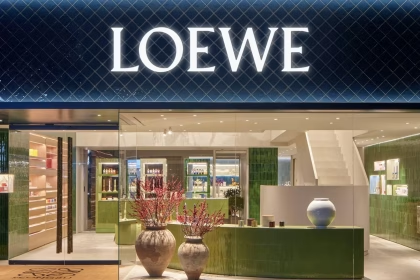A damning new report from the Information Technology and Innovation Foundation (ITIF) exposes deep structural failures in the fight against counterfeit goods on major Chinese e-commerce platforms. Released to coincide with the U.S. Trade Representative’s 2025 Notorious Markets List review, the investigation urges the U.S. government to act decisively as it details systemic problems with Temu, AliExpress, and SHEIN—and quantifies the massive threat counterfeiting poses to American businesses, brands, and consumers.
Widespread Counterfeiting Found: An “Urgent Need for Policy Action”
The ITIF investigation was grounded in direct test purchasing: the foundation bought 51 products from suspicious listings across Temu, AliExpress, and SHEIN. After examination, they determined 24 purchases were likely counterfeits, spanning categories from cosmetics, toys, luxury goods, pharmaceuticals, to household items.
According to Eli Clemens, ITIF Policy Analyst and author of the report, “The proliferation of counterfeits on Temu, AliExpress, and SHEIN is more than a series of isolated mistakes. It reflects a fundamental failure by these platforms to prioritize anti-counterfeiting efforts, leading to poor outcomes for brands and consumers alike,” said ITIF Policy Analyst Eli Clemens, who authored the report. “Counterfeit products are not only bad for the economy, but they also pose potential safety risks to consumers. Without coordinated U.S. enforcement, counterfeiters will continue to profit while American consumers and businesses pay the price.”
China’s Outsized Role in Global Counterfeiting
The ITIF report points to China and Hong Kong as the primary sources of counterfeit goods globally. Together, these markets accounted for over 90% of the total value of counterfeits seized by U.S. Customs and Border Protection (CBP) in 2024. The FBI estimates that this IP theft costs the U.S. up to $600 billion annually.
How E-Commerce Platforms Enable Fakes
The investigation details many ways sellers on Temu, AliExpress, and SHEIN exploit weak oversight:
- Keyword hijacking (using popular search terms and brands to mask counterfeit listings)
- False brand authorizations
- Deceptive product images and pricing schemes
Temu was highlighted for highly deceptive counterfeits, AliExpress for a mix of crude and sophisticated fakes, and SHEIN for ongoing IP violation concerns, even after prior scrutiny. The report also notes that despite some items being detained at U.S. ports for inspection, many counterfeits still evade CBP enforcement, revealing major gaps in current border protection measures.
Policy Recommendations: Cracking Down on Counterfeits
ITIF issues a series of clear policy recommendations:
- USTR should classify Temu, AliExpress, and SHEIN as notorious markets. This official designation would signal to global regulators and brands that the platforms are failing to sufficiently combat counterfeit sales—placing public pressure on them to act.
- CBP should invest in AI to detect counterfeits. Modern technological tools could identify suspicious listings, inconsistent pricing, and flag high-risk shipments. AI tools could systematically identify suspicious listings, detect pricing and product inconsistencies, and flag high-risk shipments, helping analysts focus enforcement and, over time, enabling more automated counterfeit detection at scale, notes the report.
Safety Risks and Economic Impact
The proliferation of counterfeit goods on these sites is not just an abstract economic concern. ITIF highlights the significant health and safety risks from fake cosmetics, pharmaceuticals, and children’s products—with consumers potentially exposed to unsafe ingredients and construction. For brands, reputational risk and lost sales combine to put further pressure on already squeezed businesses.
The report’s findings show that test purchases revealed CBP successfully detained some items from AliExpress for inspection. But it ultimately failed to seize them and missed all likely counterfeits from Temu and SHEIN, highlighting gaps in enforcement.
Industry and Policy Implications
The global scale and persistence of the problem signal that voluntary action by platforms is not enough. It is a fundamental failure by these platforms to prioritize anti-counterfeiting efforts, leading to poor outcomes for brands and consumers alike, concludes Clemens. By urging the Notorious Markets classification and advocating stronger U.S. enforcement, ITIF hopes to instigate the systemic changes required to keep pace with digital commerce’s rapid evolution.
Who Is ITIF?
The Information Technology and Innovation Foundation is the leading U.S. think tank focused on the intersection of innovation and policy. Its mission is to formulate and promote policy solutions that accelerate innovation and boost productivity to spur growth, opportunity, and progress—and its recommendations in this report are directed at Congress, Federal regulators, and international agencies as well as the platforms themselves.
Final Thoughts
The ITIF report is a wake-up call for policymakers, brands, and consumers: counterfeiting on major Chinese e-commerce sites remains rampant, technologically sophisticated, and dangerous to both America’s economy and public safety. Only a combination of regulatory enforcement, AI-powered detection, and market pressure can address these issues at their root.

















